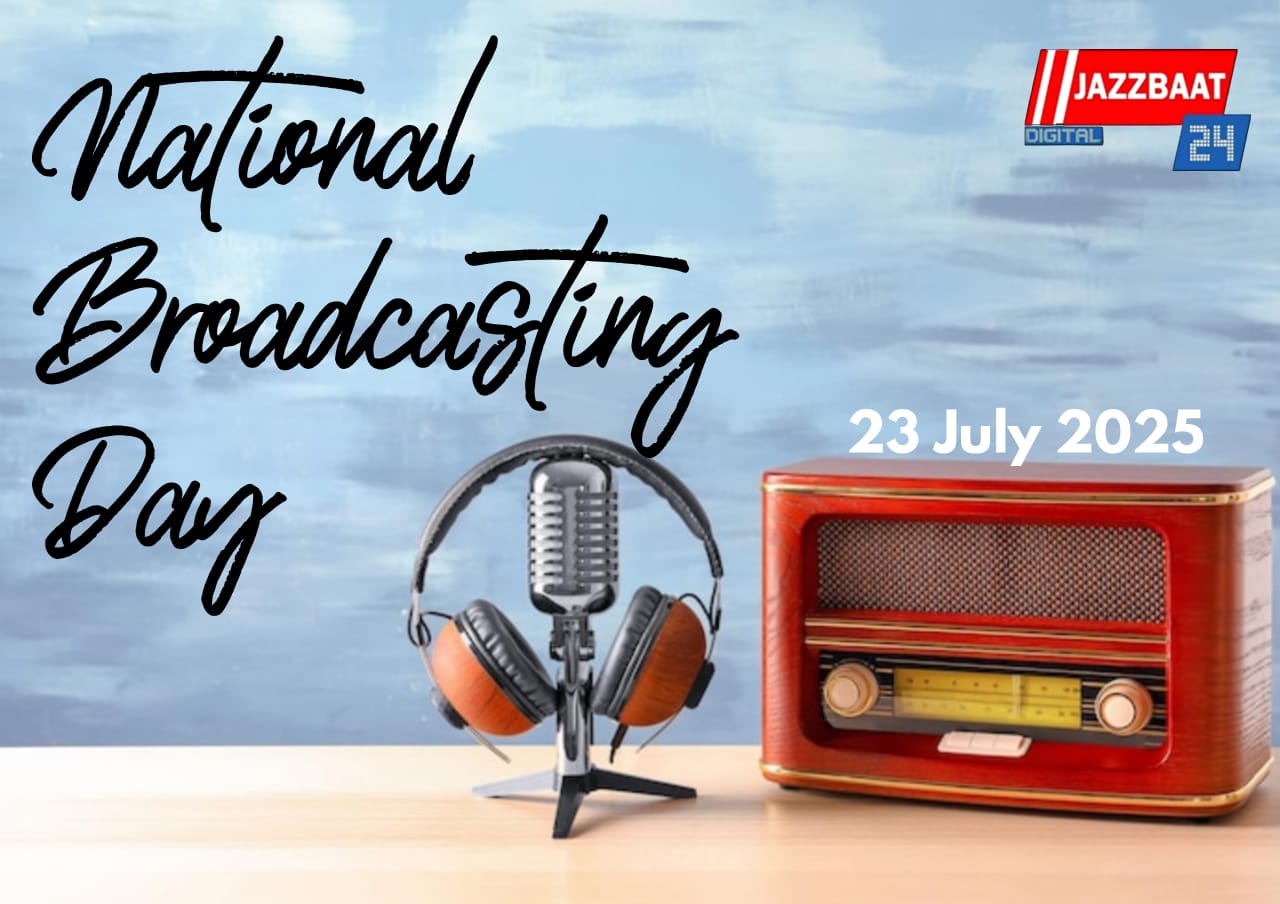
New Delhi:
Wednesday the 23rd of July is being commemorated as National Broadcasting Day in India as it is the day when organized radio broadcasting was introduced in this country when on this date in 1927 the Indian Broadcasting Company (IBC) was founded. The day highlights the huge role that broadcasting services have played in the last 90 years in reaching out to people, cultures and overall national building.
Four years after the Radio Club of Bombay broadcast the nation's first radio broadcast in 1923, the IBC was established. The foundation for All India Radio (AIR) in 1936 was laid by the company's founding, which signaled the beginning of organized radio broadcasting in India. The term "Akashvani," which has since come to be associated with Indian public broadcasting, was adopted by AIR in 1956.
By 2025, 98 percent of India's population will have been reached by AIR's 591 stations, which broadcast in 23 languages and 146 dialects. Due to such an extensive coverage, AIR has been in a position of making significant contribution in the process of communication especially in the remote and deep areas where accessibility to other media is still limited.
“Radio has long served as a bridge between the government and the people, playing a crucial role in education, health awareness, and disaster communication,” said Ashwini Vaishnaw, Union Minister for Information and Broadcasting. “It remains relevant even in today’s digital-first media environment.”
National Broadcasting Day honors the development of India's broadcasting industry, considering how radio changed from a colonial tool of communication to a vehicle for social change and national cohesion. It served to unite the populace and spread patriotic messages during the independence movement. It played a key role in advancing educational materials and developmental plans after independence.
The history of the Indian broadcasting has also reflected the development in the field of democracy in the country. The broadcasting policies were initially very tightly governed by the government and the policies have slowly become more liberal and encourage pluralism and representation from different regions of the country including the right to speech and expression, all assured in the Indian Constitution.
Speaking about the day, Gaurav Dwivedi, the CEO of Prasar Bharati, stated, that National Broadcasting Day helps to remember about the capacity of radio to form a nationwide opinion and educate people as well as preserve the diversity of languages and culture. The essence of this idea is as we adopt digital networks, we must not lose the essence of public service broadcasting.”
Prasar Bharati also made the occasion with a special occasion which was thrown at the AIR headquarters in Delhi. It included panel discussions, senior broadcasters' tributes, and thoughts on AIR's digital transformation. The schools and other educational establishments organized listening sessions and conferences where old time favorites such as Mann Ki Baat, Hawa Mahal, and Vividh Bharati were reprised.
The Nation salutes the medium that lent its voice to India and still makes an impression on the lives of generations to come even as the media itself evolves by looking upon the National Broadcasting Day.